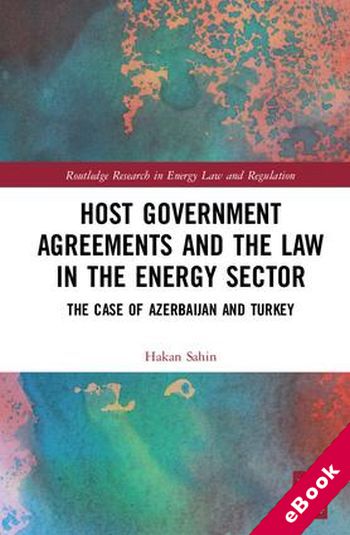
The device(s) you use to access the eBook content must be authorized with an Adobe ID before you download the product otherwise it will fail to register correctly.
For further information see https://www.wildy.com/ebook-formats
Once the order is confirmed an automated e-mail will be sent to you to allow you to download the eBook.
All eBooks are supplied firm sale and cannot be returned. If you believe there is a fault with your eBook then contact us on ebooks@wildy.com and we will help in resolving the issue. This does not affect your statutory rights.
The Energy industry is a key source of growth stimulation for developing states. Understandably, developing states are eager to enter into petroleum investment contracts with international investors, with the expectation that this will benefit their countries. Some developing states’ domestic law provides a welcoming investment environment in the form of guarantees and stability, while others provide these opportunities by agreeing to investment contracts or treaties drafted by international organisations established to facilitate such agreements.
This book determines the political risks, particularly of indirect expropriation, that arise from unilateral actions of host governments during the life span of energy investment projects. Focusing on stabilisation clauses as a political risk manager, it examines what influences host states to agree stability in their long term host governmental agreements. Proposing a framework for the role to be played by both internal forces and external forces, it examines political regimes and state guarantees to foreign investors in Azerbaijan and Turkey from a comparative perspective, assessing how effective internal factors in Azerbaijan and Turkey are in facilitating contractual stability in their energy investment projects.
Providing a comprehensive analysis of stabilization clauses and the internal and external factors that compel host states to commit to them, this book will appeal to practitioners, students and scholars in international investment law and energy law.